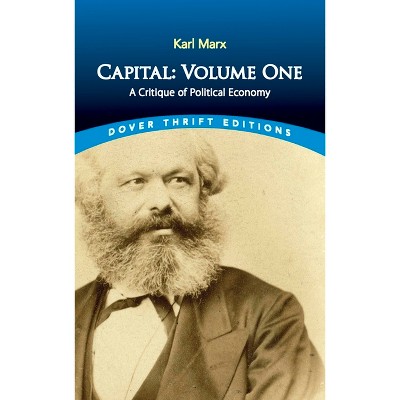From Feudalism to Capitalism - (Contributions in Political Science) by Claudio J Katz & Cladio Katz (Hardcover)

About this item
Highlights
- In his new book, Katz offers a new reading of Karl Marx's theory of history.
- About the Author: CLAUDIO J. KATZ is an Assistant Professor of Political Science at Loyola University of Chicago.
- 197 Pages
- Political Science, Political Ideologies
- Series Name: Contributions in Political Science
Description
About the Book
In his new book, Katz offers a new reading of Karl Marx's theory of history. The book re-examines two incompatible versions of historical materialism: one ascribes the primary cause of historical development to technological progress, the other to class struggle. Katz argues that these versions are inadequate, both as interpretations of Marx's theory and as explanations of the problems of historical change. His study distinguishes three different levels of analysis. The first level is Marx's own summaries of historical materialism, which typically award causal primacy to technology. The second level is Marx's historical studies of feudalism and the transition to capitalism, where class and class struggle play a central role. The third level is the modern debate on the transition from feudalism to capitalism. The history of this transition is chosen by Katz as an empirical test of Marxian theory because it is the principal source from which Marx developed the concepts for interpreting the dynamics of crisis in modes of production. By establishing a reciprocal movement between the respective explanatory roles of technology and class struggle on the one hand, and the historical record on the other, Katz evaluates their relative contributions to an understanding of the supersession of feudalism by capitalism. The result is a reconstruction of Marx's theory of radical social change, one which is historically and theoretically more tenable.
The book's first two chapters develop and contrast the two dominant principles of historical causality in Marx's work: class struggle and the development of technology. Subsequent chapters explore the history of feudalism's decline and final disintegration, and its replacement by capitalism, providing a critical analysis of Marx's theory of history. From Feudalism to Capitalism is an important new scholarly source for students of Karl Marx's social and political thought, or students enrolled in social science programs.
Book Synopsis
In his new book, Katz offers a new reading of Karl Marx's theory of history. The book re-examines two incompatible versions of historical materialism: one ascribes the primary cause of historical development to technological progress, the other to class struggle. Katz argues that these versions are inadequate, both as interpretations of Marx's theory and as explanations of the problems of historical change. His study distinguishes three different levels of analysis. The first level is Marx's own summaries of historical materialism, which typically award causal primacy to technology. The second level is Marx's historical studies of feudalism and the transition to capitalism, where class and class struggle play a central role. The third level is the modern debate on the transition from feudalism to capitalism. The history of this transition is chosen by Katz as an empirical test of Marxian theory because it is the principal source from which Marx developed the concepts for interpreting the dynamics of crisis in modes of production. By establishing a reciprocal movement between the respective explanatory roles of technology and class struggle on the one hand, and the historical record on the other, Katz evaluates their relative contributions to an understanding of the supersession of feudalism by capitalism. The result is a reconstruction of Marx's theory of radical social change, one which is historically and theoretically more tenable.
The book's first two chapters develop and contrast the two dominant principles of historical causality in Marx's work: class struggle and the development of technology. Subsequent chapters explore the history of feudalism's decline and final disintegration, and its replacement by capitalism, providing a critical analysis of Marx's theory of history. From Feudalism to Capitalism is an important new scholarly source for students of Karl Marx's social and political thought, or students enrolled in social science programs.Review Quotes
?Katz "reconstructs" Marx's analysis of the transition from feudalism to capitalism. He resolves Marx's contradictory view of history as both class struggle and the development of the forces of production in favor of a revised form of class struggle. Utilizing mostly Marxist historiography, he answers recent non-Marxist criticisms that the English and French revolutions were not in fact "bourgeois" movements by arguing that feudalism was destroyed not by the bourgeoisie but by the peasants, from within. The latter group then disintegrated as a cohesive class, allowing the bourgeoisie to take over and to expand technological innovations begun earlier by peasants. The strict confines of an anachronistic, Eurocentric Marxist paradigm--as in Katz's failure to fully distinguish between feudalism and absolutism--ignore the potential of the state to gain (more than relative) autonomy from social classes. Overall, however, this is an elegantly reasoned work. Good notes, index, and selected bibliography. Upper-division and graduate collections.?-Choice
"Katz "reconstructs" Marx's analysis of the transition from feudalism to capitalism. He resolves Marx's contradictory view of history as both class struggle and the development of the forces of production in favor of a revised form of class struggle. Utilizing mostly Marxist historiography, he answers recent non-Marxist criticisms that the English and French revolutions were not in fact "bourgeois" movements by arguing that feudalism was destroyed not by the bourgeoisie but by the peasants, from within. The latter group then disintegrated as a cohesive class, allowing the bourgeoisie to take over and to expand technological innovations begun earlier by peasants. The strict confines of an anachronistic, Eurocentric Marxist paradigm--as in Katz's failure to fully distinguish between feudalism and absolutism--ignore the potential of the state to gain (more than relative) autonomy from social classes. Overall, however, this is an elegantly reasoned work. Good notes, index, and selected bibliography. Upper-division and graduate collections."-Choice
About the Author
CLAUDIO J. KATZ is an Assistant Professor of Political Science at Loyola University of Chicago.









